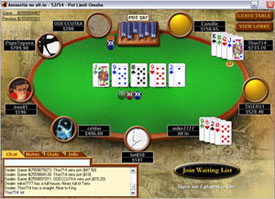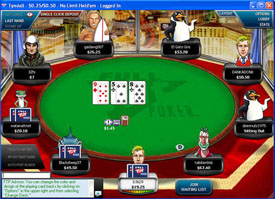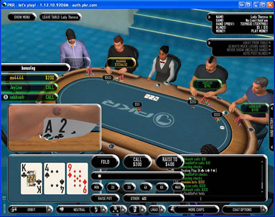How to evaluate casino software providers
Start by verifying licensing certifications issued by recognized regulatory authorities like the UK Gambling Commission, Malta Gaming Authority, or Gibraltar Regulatory Authority. Legitimate developers maintain transparent compliance records and undergo regular audits from independent agencies such as eCOGRA or GLI, ensuring fairness and data security.
Prioritize suppliers with a proven portfolio demonstrating variety and innovation–look beyond flashy interfaces to assess backend stability, integration capabilities, and multi-platform performance. Check uptime reports, server reliability, and responsiveness metrics provided by technical reviews or client testimonials.
Examine the cryptographic methods in use, focusing on encryption standards and secure random number generators to protect client data and game results. Companies investing in robust cybersecurity frameworks consistently protect operators and end-users from breaches or manipulation attempts.
Transparency about payout percentages and volatility is also vital. Trusted firms openly disclose these figures and provide detailed game rules. Engage with operators using these technologies to gauge player satisfaction and support responsiveness, which often reflects vendor professionalism and ongoing maintenance quality.
Verifying Licensing and Regulatory Compliance of Software Providers
Confirm the existence of valid licenses issued by recognized authorities such as the Malta Gaming Authority (MGA), UK Gambling Commission (UKGC), or Gibraltar Regulatory Authority. These licenses guarantee adherence to stringent regulatory frameworks designed to protect players and uphold industry standards.
Verify the license numbers through official regulatory portals to ensure authenticity and check for any sanctions or violations associated with the vendor. Regulatory bodies often provide searchable databases; use them to cross-reference details.
Request recent audit reports from independent testing organizations like eCOGRA, iTech Labs, or GLI. These audits validate randomness, fairness, and security of the gaming modules implemented by the vendor, which reflects compliance beyond formal licensing.
Evaluate the provider’s commitment to anti-money laundering (AML) and responsible gaming policies. Compliance with international standards such as the Financial Action Task Force (FATF) recommendations and implementation of responsible gaming tools are key compliance indicators.
Check for certifications relating to data protection regulations, including GDPR compliance for operations involving European players. Data security protocols must be transparent and subjected to periodic assessments.
Scrutinize the company’s history regarding regulatory infractions and dispute resolutions. A clean record or a transparent remediation process signals a robust compliance culture within the organization.
Evaluating Game Portfolio Quality and Fairness Metrics
Prioritize suppliers whose libraries encompass a diverse range of titles, including slots, table games, and live dealer options, all developed with advanced RNG (Random Number Generator) certifications such as those from iTech Labs, eCOGRA, or GLI. Verify that RTP (Return to Player) rates are transparently published and consistently fall within industry standards–typically between 94% and 98%. Avoid platforms that lack independent audit reports or exhibit RTP values significantly outside accepted ranges.
Analyze volatility levels across the portfolio to ensure a balanced mix of high, medium, and low-risk games, catering to varied player preferences. Check for integration of game history tracking and session analytics, which indicate a commitment to transparency and responsible play. Additionally, scrutinize the presence of provably fair mechanisms in blockchain-based or crypto-compatible titles, ensuring cryptographic verification of outcomes.
Investigate the provider's adherence to testing protocols from recognized agencies like TÜV Rheinland or BMM Testlabs. Confirm that game randomness is audited regularly with publicly accessible certificates. The presence of RNG seed data publication or certification by third-party testers further strengthens credibility.
Evaluate game portfolio updates frequency to gauge innovation and responsiveness to regulatory changes. Providers issuing routine patches and deploying anti-fraud measures demonstrate superior integrity. Finally, examine user feedback and industry reputation for reports on anomalies, payout delays, or irregularities to corroborate fairness claims with real-world performance.
Analyzing Security Protocols and Data Protection Measures
Verify the utilization of end-to-end encryption standards such as TLS 1.3 to secure data transmissions between users and the platform. Confirm that the operator employs multi-factor authentication (MFA) for administrative access, minimizing risks related to unauthorized control.
Review compliance with internationally recognized regulations like GDPR and PCI DSS to ensure personal and financial data receives adequate protection. Confirm that third-party audits are conducted regularly by accredited cybersecurity firms to validate the integrity of the system.
Examine whether intrusion detection and prevention systems (IDPS) are active, providing real-time monitoring for suspicious activity. Data backups should follow a strict schedule, with off-site storage and encrypted archives to guarantee recovery after potential breaches.
Confirm that sensitive information is encrypted both at rest, using AES-256 or stronger algorithms, and in transit. Additionally, session management protocols must include secure cookie handling with flags like HttpOnly and Secure to prevent session hijacking.
Evaluate the provider’s risk management framework, particularly the implementation of zero-trust architecture principles, which limit access based on strict identity verification, regardless of network location. The ability to promptly patch vulnerabilities and communicate updates displays operational security maturity.
Reviewing Integration Capabilities and Technical Support Services
Prioritize vendors offering modular APIs with extensive documentation supporting multiple programming languages and frameworks, which eases implementation across diverse platforms. Confirm availability of SDKs that streamline compatibility with your existing infrastructure and ensure seamless data synchronization. Evaluate the provider’s track record for quick deployment cycles, ideally under two weeks for standard setups.
Verify system architecture supports real-time updates and scalable cloud hosting options to accommodate fluctuating traffic without service interruptions. Check for compatibility with third-party risk management tools and compliance modules tailored to your jurisdiction’s regulations.
Technical support must include 24/7 multilingual assistance through instant channels such as live chat and direct phone lines. Response times below 30 minutes for critical issues indicate a provider's commitment to operational continuity. Assess if dedicated account managers are assigned to offer personalized troubleshooting and proactive maintenance.
Request case studies demonstrating successful integrations in similar operational environments, focusing on measurable uptime improvements and resolution times. Confirm availability of training materials and routine software health checks to minimize downtime caused by updates or patches.
Comparing Payment Solutions and Transaction Reliability
Prioritize providers integrating multiple payment gateways with global reach, such as Visa, Mastercard, Skrill, Neteller, and emerging cryptocurrencies like Bitcoin and Ethereum. Verify the availability of local payment methods tailored to target markets, which reduces withdrawal delays and transaction failures.
Examine settlement times closely: leading platforms process deposits within seconds and withdrawals between 24 to 72 hours, with expedited verification protocols cutting delays significantly. Cross-check refund policies and chargeback rates; a lower incidence signals robust fraud detection and dispute mitigation mechanisms.
Transaction security hinges on industry standards like PCI DSS compliance and 3D Secure authentication. Providers supporting tokenization and end-to-end encryption minimize data breaches and boost user trust. Review audit reports and external certifications from entities such as eCOGRA or GLI for independent validation of fair processing and transaction integrity.
Reliability also depends on system uptime and load management. Platforms offering real-time monitoring and automatic failover ensure uninterrupted service during peak periods. Analyze historical downtime statistics and customer feedback to identify persistent bottlenecks or transactional glitches.
Lastly, transparency in fee structures is critical: clear disclosure of processing fees, currency conversion charges, and withdrawal limits avoids hidden costs affecting player retention. Providers facilitating instant notifications on transaction status enhance user experience and reduce support queries.
Assessing Provider Reputation Through Player and Industry Feedback
Start by examining verified user reviews across recognized forums and review aggregators such as Trustpilot, AskGamblers, and Casinomeister. Focus on patterns in complaints related to payout delays, software glitches, and customer service responsiveness.
Cross-reference this with industry evaluations from well-established bodies like eCOGRA, iTech Labs, and GLI, which conduct independent audits on game fairness and system security. A developer consistently passing these audits signals commitment to integrity.
- Analyze complaint resolution rates; providers with a prompt and transparent dispute handling process tend to maintain higher trust.
- Observe longevity and activity in industry events and trade shows like ICE London and G2E. Consistent presence often correlates with reputable operations.
- Monitor social media channels for direct player interactions. Authentic engagement and quick addressing of concerns reflect emphasis on user experience.
- Evaluate partnerships with licensed operators. Studios tied to operators regulated in jurisdictions such as the UK, Malta, or Gibraltar demonstrate adherence to strict regulatory frameworks.
Combine quantitative data from ratings and audits with qualitative insights from player testimonials to form a comprehensive picture. Prioritize suppliers showing transparency, proactive communication, and third-party validation to minimize risk and align with safe entertainment standards.
|










